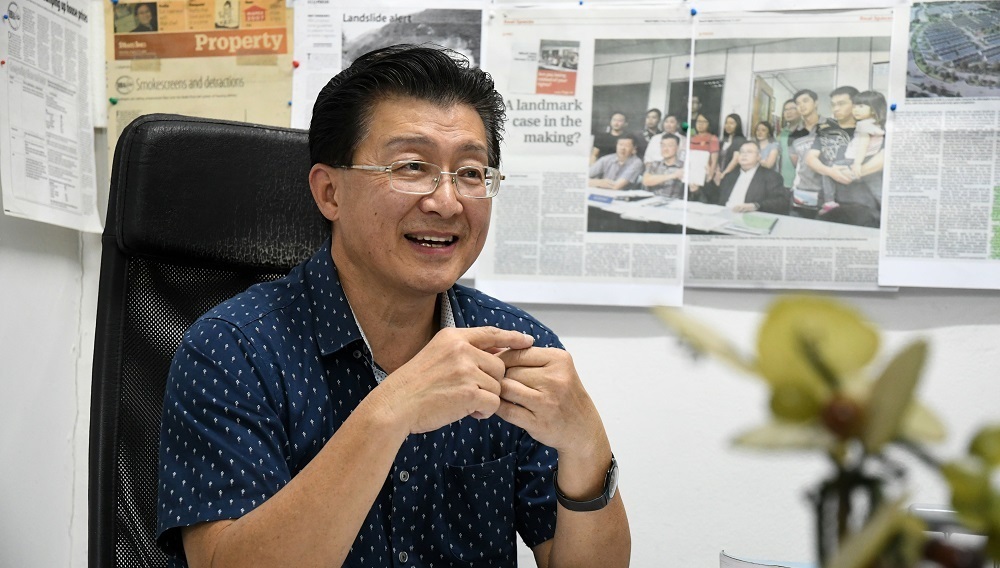
Leaders, good or bad, spell the difference between a well-run or badly-run strata property. The concept of a management body should be fairly clear to Joint Management Body (JMB) and Management Corporation (MC) council members or even to many long-time strata property owners. However, for non-active owners and residents — especially first-time owners — this form of common-interest “governance” can be perplexing, what with the many parties (developer, managing agent, management council, other buyers, etc) involved, not to mention the legal duties of each party.
Those who have never lived in an owners’ corporation (condominium, apartment, townhouse, gated community) often do not understand the necessity of service charges, sinking fund, rules and volunteering to sit in the management council. For them, the “management” may be perceived as little more than a nebulous entity that expects prompt payment on monthly invoices. This lack of understanding can lead to miscommunication and misunderstanding, with the general perception that strata living is “hard”.
Required by law
Call it by whatever name — JMB, MC or Residents’ Association (RA) — they are all basically an association of property owners looking out for their best interest. In the first two, it is a requirement by law for strata-titled properties under the Strata Titles Act, 1985 and the Strata Management Act, 2013 (Act 757) (SMA), whereas RAs are voluntary organisations registered with the Registrar of Societies.
The SMA stipulates that the JMB shall be established upon the convening of the first annual general meeting (AGM), not later than 12 months from the date of delivery of vacant possession. This is to allow owners to expediently have a say in how their investment is managed and maintained.
Very often, only a small percentage of owners in strata-titled developments take interest in how their properties are managed. This leaves the handful of volunteers burnt out after years of serving. There are also some who are interested but do not have the knowledge or skill to contribute meaningfully in the decision-making council.
Challenging duties
In the SMA, the management committee, be it the JMB or MC, the purchaser representation should comprise a minimum of three purchasers and a maximum of 14. There shall be a chairman, secretary and treasurer, all of whom shall be natural persons.
Although these are voluntary positions, they have to be taken seriously because they involve people and their investments. Most owners’ corporations are headed by a leader who might also be the chairman at meetings. Strong leadership is an essential component of every successful owners’ corporation. Very often, those who speak the loudest at meetings are elected but that may not be sufficient for the long term.
A good leader can make a difference for community spirit. Selecting a leader with the right strength and qualities can lead to a more productive and happy community. Here are some tips on how to choose the leader of your home community.

“A manager does things right; a leader does the right thing.”
To add to that adage, a leader is someone who not only recognises the “right thing”, but who can also motivate others to get the right thing done. Strong leaders should have skills, knowledge and experience plus the abilities to motivate and command.
Leadership qualities
How do you recognise people who have this special combination of insight and inspiration? There are some personal characteristics that reflect strong leadership. Look for people who:
Respond maturely to criticism — No one in a position of power will escape criticism. Good leaders have the ability to discern when criticism is valid and should be taken note of and when it is inapplicable and should be ignored.
Has an open mind — Must be able to approach problems creatively. Perspective is an invaluable leadership tool. Fear of change can lead to stagnation.
Communicate well — Able to express ideas clearly and persuasively, as well as help some team members who are not particularly articulate, yet are valuable and productive, to play their roles well.
Acknowledge mistakes — Decisions may sometimes turn out to be errors. Instead of becoming defensive or making excuses, wise leaders acknowledge mistakes and make course corrections.
Are enthusiastic — Enthusiasm is contagious. With it, council members are motivated to keep working. Without it, voluntary work becomes a burden.
Lead by example and promote teamwork — Arrive on time, never shirk responsibilities and demonstrate good work habits. Effective leaders instil cooperation among volunteers and facilitate teamwork, as well as pitch in alongside others and not just issue orders.
Listen to others — Seek opinions from others, encourage sharing of ideas among team members and give credit when credit’s due.
Have problem-solving skills — Use acquired knowledge and experience to get the job done.
Are mindful and considerate — Genuinely caring leaders inspire confidence in others. Confidence leads to results. They delegate, give and seek constructive feedback, and know how and when to give praise. Praise is the simplest and often the most valued form of reward. Tactful leaders know how to criticise constructively: pointing out what is wrong without attacking personalities.
Have sound judgment — Able to identify and prioritise issues, then weigh alternatives carefully before making decisions.
Take responsibility — Never blame others for problems.
Is visionary — Strong leaders understand and promote the community’s best interests. They set goals, communicate what’s needed to achieve them and then move toward them.

Practical considerations
Other than the above-listed, here are some practical considerations when electing the leaders of your owners’ corporation:
• A leader should understand the functions of the owners’ corporation and be familiar with significant historical events of the community. Newcomers frequently make good volunteers. However, there are some situations which call for someone possessing a historical perspective. For example, if the corporation is in the midst of a sensitive litigation or a new management contract, a newcomer might detract by insisting on covering old ground again.
• How much interest has the candidate shown in the community and its undertakings? Has there been regular meeting attendance and participation in activities? If not, investigate the sudden interest. Be particularly careful about “one-issue” candidates who volunteer because they dislike a certain contractor or are opposed to a recent service charge increase.
• A candidate should not have conflicting personal and professional commitments. For example, a high-public-profile candidate may have numerous commitments that mean infrequent participation.
Such are the tenets of a purely voluntary organisation. If they sound like a mini-government, it is in fact one.
If you own a home with common property, you automatically become a member, like it or not. However, over time, we have noticed that homeowners can be categorised into three groups — those who make things happen, those who wait for things to happen and those who ask what happened. Which group do you belong to? Choose your leaders well and prosper or wait for the next election at the AGM and run for a council member post.
Datuk Chang Kim Loong is the Hon. Secretary-General of the National House Buyers Association (HBA).
HBA can be contacted at: Email: [email protected]
Website: www.hba.org.my
Tel: +6012 334 5676
Stay safe. Keep updated on the latest news at www.EdgeProp.my
This story first appeared in the EdgeProp.my e-Pub on July 24, 2020. You can access back issues here.





